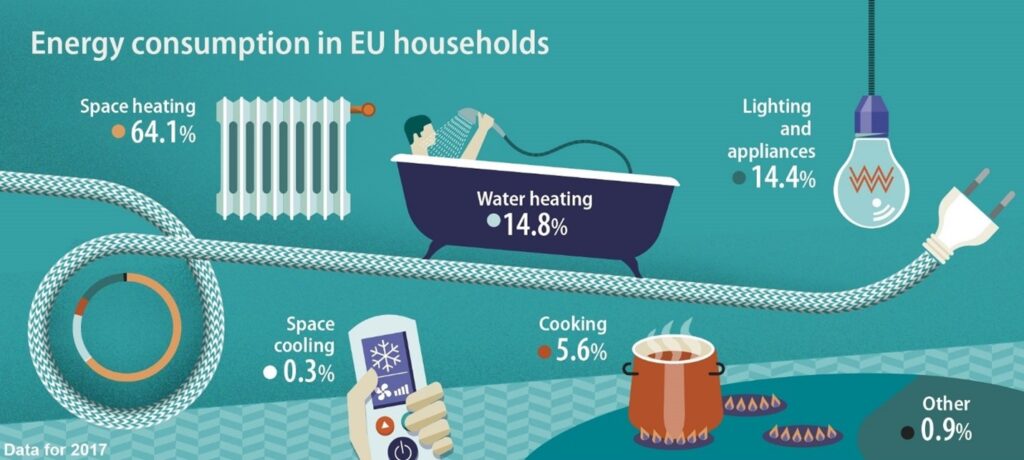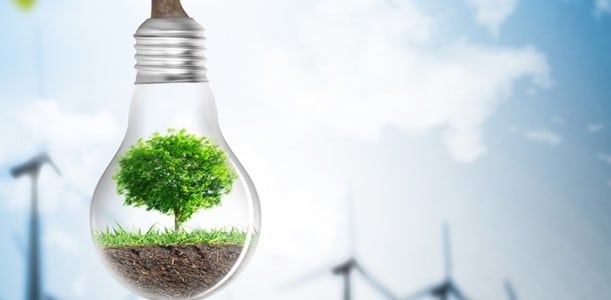Understanding how we use energy at home is more crucial than ever. From heating our homes to powering our gadgets, how we consume energy impacts our wallets and the planet.
Albeit you’re just starting to think about gas and electric comparison and looking for new ways to increase energy efficiency, this guide will help you understand the complexities of energy ocean management systems at home.
Sources of Home Energy
Various energy sources power our homes, including electricity, natural gas, and renewable energy. Understanding where our energy comes from is the first step in managing energy effectively.
Electricity
Electricity is a versatile and widely used energy source in homes. It’s generated from various sources, including fossil fuels, nuclear power, and renewable sources like wind and solar. The average electricity usage household relies heavily on electricity for lighting, appliances, and heating.
However, the environmental impact of electricity varies depending on how it’s produced. Using more energy-efficient appliances and lighting can significantly reduce electricity usage and lower your energy bill.
Natural Gas
Natural gas is commonly used for heating, cooking, and water heating. It’s often cheaper than electricity and has a lower carbon footprint when burned. However, it’s still a fossil fuel, and its extraction and transportation can have environmental consequences.
Comparing gas and electric options for your home can help you decide which is more cost-effective and sustainable for your needs.
Energy Consumption Patterns
Understanding how much energy we use and when can help us identify opportunities to save energy and reduce costs.
Daily and Seasonal Patterns
Energy consumption varies throughout the day and year. For instance, electricity usage typically peaks in the evening when families are home, using lights, cooking, and running appliances.
Similarly, energy use often increases during winter due to heating needs. Monitoring your bills and usage patterns can help you identify times of high consumption and find ways to cut back.
Standby Power
Many consumer electronics and appliances consume energy, known as standby power, even when turned off. This can account for up to 10% of household energy use.
Unplugging devices or using smart power strips can help reduce this waste and save energy.
The Role of Energy Management System Companies
Energy management companies are crucial in helping households and businesses optimize their energy use.
Services Offered
These companies provide various services, including energy audits, installation of energy management systems, and advice on improving energy efficiency. Identifying areas where you can save energy helps you reduce your bills and carbon footprint.
Benefits
Working with an energy management company can bring significant cost savings and environmental benefits. Their expertise in energy management program ensures that your home operates as efficiently as possible, reducing wasted energy and increasing overall efficiency.
Energy Efficiency at Home
Improving energy efficiency at home is one of the most effective ways to reduce energy consumption and lower your bills.
Insulation and Weatherproofing
Proper insulation and weatherproofing can significantly reduce heating and cooling costs by keeping your home at a comfortable temperature with less energy. Sealing gaps and adding insulation can dramatically affect your home’s energy performance.
Renewable Source Options
Switching to renewable sources can further reduce your carbon footprint and reliance on fossil fuels.
Solar Panels
Installing solar panels is a popular way to harness renewable sources. Solar panels convert sunlight into electricity, reducing your dependence on the grid and lowering your electricity bills.
Wind Turbines
Small wind turbines can also be viable for those with enough land. Wind energy can supplement your home’s power needs, especially in windy areas, contributing to more sustainable energy use.
Understanding Your Energy Bills
Interpreting your bills can help you track your energy consumption and identify areas to improve energy efficiency.
Key Components
Bills typically include charges for the amount of energy used, delivery fees, and sometimes additional fees or taxes. Understanding these components can help you see where your money goes and how you might save.
Tracking Usage
Many suppliers offer online tools to track your energy usage. These tools can provide insights into your consumption patterns and highlight opportunities to save energy and reduce costs.
Carbon Emissions and Home Energy Use
Home energy consumption contributes significantly to carbon emissions, impacting the environment.
Carbon Footprint
Your carbon footprint is the total amount of greenhouse gases your activities produce, including energy use. Reducing energy consumption and switching to renewable energy sources can lower your carbon footprint.
Practical Steps
Simple steps like using efficient lighting, reducing standby power, and improving insulation can significantly reduce home emissions.
Practical Tips for Reducing Energy Use
Implementing practical strategies can help you manage energy review more efficiently and reduce costs.
-
Smart Thermostats
Smart thermostats allow you to control your heating and cooling systems more effectively. They learn your schedule and preferences and adjust temperatures to save energy when you’re not home.
-
Energy Management Programs
Participating in energy management programs offered by energy suppliers can provide incentives for reducing energy use. These programs often include tools and tips for improving energy efficiency and lowering bills.
-
Simple Actions
Small changes can also add up to significant savings:
- Turn off lights when not in use.
- Use natural light during the day.
- Wash clothes in cold water.
- Fix leaky faucets to save hot water.
Final Words
Whether through comparing gas and electric options, working with energy management companies, or adopting efficient practices, each step brings us closer to a more sustainable and cost-effective future. Understand how much electricity you need and then proceed accordingly.




